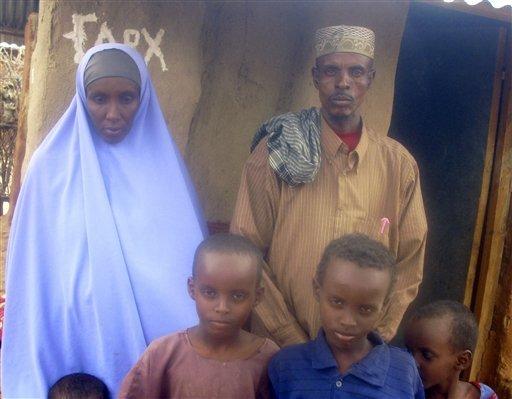 Extreme hunger is a harsh daily reality for more than 12 million people in East Africa because of what many are calling the worst drought in 60 years. Further compounding this natural disaster are political violence in Southern Somalia and drastic increases in food prices. These numbers have swelled the already overcrowded Dadaab refugee camp in Kenya to a half a million people. Crowded conditions in Ethiopian and Kenyan camps, and in urban areas in Somalia, pose huge health concerns. Cases of cholera and measles outbreaks are on the rise. Somalia is the hardest hit of the East African countries stricken by drought. The UN estimates that more than 3 million people are suffering from inadequate nutrition. And nearly 250,000 Somalis are at risk of starvation if immediate lifesaving interventions do not reach them.
Extreme hunger is a harsh daily reality for more than 12 million people in East Africa because of what many are calling the worst drought in 60 years. Further compounding this natural disaster are political violence in Southern Somalia and drastic increases in food prices. These numbers have swelled the already overcrowded Dadaab refugee camp in Kenya to a half a million people. Crowded conditions in Ethiopian and Kenyan camps, and in urban areas in Somalia, pose huge health concerns. Cases of cholera and measles outbreaks are on the rise. Somalia is the hardest hit of the East African countries stricken by drought. The UN estimates that more than 3 million people are suffering from inadequate nutrition. And nearly 250,000 Somalis are at risk of starvation if immediate lifesaving interventions do not reach them.
Meet Ahmedhashim Mawlid Abdi, a 40-year-old, a father of seven children from Somalia. He was a nomad farmer, living off his sheep and goats and cows. During rainy seasons, his family drank the animal milk. During the dry season, they sold some and used the money to buy food. All this changed, when several seasons passed without enough rain, Abdi could no longer feed his livestock and family. Reluctantly, he decided to flee his own country to a refugee camp in the neighboring country Kenya. The journey took over 17 days, he and his family faced multitude of challenges along the way. First, Abdi and his family fled to the nearest town, Afmadow, which was in the hands of Al-Shabab, a militant group. He was put in jail for 2 days when the militants suspected him of leaving town. He was released after the local elders intervened. He later fled in the middle of the night, leaving two children behind — a 4-year-old girl and a 20-year-old — with relatives.
Over the course of the journey, Abdi and his family traveled with five other families, facing hunger, thirst, danger, and exhaustion. Along the way, Abdi carried his 5-year-old daughter on his back and 10 kilograms of rice, his wife, who was pregnant, carried a 2-year-old daughter on her back. One night, a lion almost attacked them; fortunately, he was able to scare it away with his
flashlight. They were ambushed and robbed of the little food they had by gunmen. The women were all harassed by the gunmen. Three days into the journey, Abdi’s 7-year-old son died when he came down with a severe fever which could not be treated.
Abdi and his family arrived at the refugee camp in Dadaab, Kenya, after facing hunger and exhaustion. He found the refugee camp different from what he had
imagined. He thought there would be plenty of food, but the rations they received were just an amount they can survive on, however, much better than the destitution in Somalia.
Like all parents, he has high hopes for his children and hopes they will get a proper education so that their lives can improve. He does not know if he will ever return to Somali, but he hopes someday he can return to the country of his “father and grandfathers”, when it is in peace.
Next Week: Dadaab Refugee Camp Offers Hope

